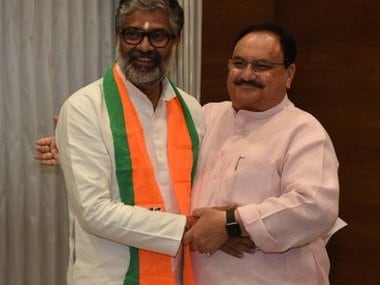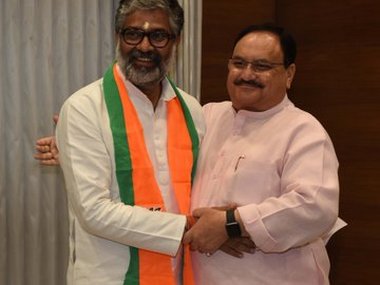Neeraj Shekhar may well have strong reasons for blasting the Samajawadi Party, expressing his disillusionment with its chief Akhilesh Yadav, and proclaiming his newfound love for Prime Minister Narendra Modi. After all, in ordinary circumstances, it takes a lot to resign from membership of the Rajya Sabha. Fifty-year-old Shekhar, son of former prime minister Chandra Shekhar, is no rookie in politics. He would know only too well that he will, in all probability, shortly return to the Upper House, this time as a BJP member, to serve the remainder of his term. In the Rajya Sabha by-polls, it is a near-certainty that the ruling party in the state where elections are due would win. Shekhar was an MP from Uttar Pradesh, where the BJP has a brute majority in the state Assembly. Since late last month, a day ahead of the beginning of the ongoing Parliament session, the BJP is following a new pattern to increase its numbers in the Rajya Sabha. It is not inclined to be in perpetual wait mode to reach the majority mark. [caption id=“attachment_7005831” align=“alignleft” width=“380”]  Neeraj Shekhar joining the BJP. Image courtesy: Twitter/@BJP4India[/caption] As the Rajya Sabha was about to open for the new session, four out of six Telugu Desam Party (TDP) MPs in Rajya Sabha quit their parent party and joined the BJP. They expressed a lack of confidence in their former leader N Chandrababu Naidu and hailed Modi’s leadership. Similarly, the lone member of Om Prakash Chautala’s INLD in the Rajya Sabha, Ram Kumar Kashyap, joined BJP. The four TDP members didn’t attract disqualification because they constituted two-thirds of the total strength of their parent party in the House. It was a similar case for the INLD MP. But Shekhar had to resign because the Samajwadi Party had 12 members in the Rajya Sabha. By resigning, he will escape the anti-defection law. His return as a BJP member is a near-certainty. The real significance of these developments is deeper. Such defections among members of the Rajya Sabha are taking place for the first time. Defections, splits within a party, formation of new groups, and other such events have been happening since the beginning of electoral politics. However, these had not taken place in the Rajya Sabha earlier, as numbers in the Upper House do not decide the fate of the government of the day. Till 21 June, individual Rajya Sabha MPs would make political realignments but would not official defect from the parties on whose ticket they were elected. A recent example is Sharad Yadav of the JD(U), who was disqualified by the Chairman of the Rajya Sabha in December 2017 after it was came to be known that he had formed a new party. In the present situation, the NDA lacks a majority in the Rajya Sabha, which occasionally causes embarrassment to the central government and stalls some key Bills. The NDA had earlier accepted this situation. However, the current BJP dispensation is showing a different approach. It has introduced an entirely new phenomenon in Indian politics. The ongoing developments are yet another manifestation of the kind of expansionist politics which the BJP, under the leadership of Modi and Amit Shah, pursues. To use corporate terminology, this can be described as politics of acquisitions and mergers (and, in some cases, collaboration). Such a political strategy has been seen earlier as well, but Modi and Shah have given it an entirely new dimension. Their approach is characterised by precision and controlled aggression, as also the required stealth. The BJP now has 78 MPs in the Rajya Sabha and the Congress stands as a distant second, with 48 MPs. The crossing over of two-thirds of TDP MLAs into the BJP had its fallout on Telugu politics. The BJP leadership believes that if it has to emerge as an alternative to Jagan Mohan Reddy’s YSRCP, which swept both the parliamentary and Assembly polls recently, it has to acquire the worker base of the TDP. While replying to the Motion of Thanks to the President’s address, Modi had said that it was known that the BJP didn’t have a majority in the Upper House. He further said that people are closely scrutinising the working of the Rajya Sabha and will penalise those who kept on disrupting proceedings and stalling critical Bills, thereby subverting the will of the people.
To use corporate terminology, the strategy of the BJP can be described as politics of acquisitions and mergers (and, in some cases, collaboration).
Advertisement
End of Article


)
)
)
)
)
)
)
)
)



